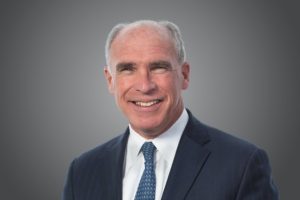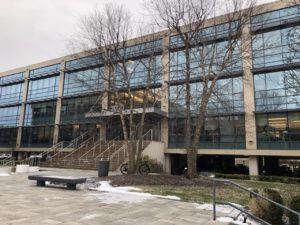When the acquisition of Purchase-based health care provider Westmed by Summit Health based in Berkeley Heights, New Jersey, became effective just before Christmas, the two multispecialty medical practices formally started joining their businesses in a process that is expected to take several months to complete.
In addition to dealing with the complexities that accompany any business merger, company leadership had to make sure that serving patient needs remains the prime objective.
“Over the years Westmed has enjoyed a wonderful reputation delivering the best health care with the best outcomes for the patients,” Jeff Alter, CEO of physician-owned Summit Health told the Business Journal. “We saw Westmed as a very like-minded group that if together we would really strengthen the ability to deliver connected care to even more of the New York-New Jersey population. From the Summit Health side, having the ability to add Westmed to the family was incredibly important. We saw a culture that was very much like ours. We saw a commitment to the patient that was very much like ours, and we saw a physician-led organization that was exactly like ours.”

Anthony Viceroy, CEO of Westmed who has been appointed president and COO of Summit Health, told the Business Journal that during the process of discussing the merger possibilities it became obvious that there was a shared vision.
“Because we had shared values and shared beliefs in how we saw health care and where health care was headed, it became very obvious to us that Summit Health was going to be the right strategic fit long term,” Viceroy said. “The more time that we spent with the management team and the layer below and really understanding how the organizations would come together it became very simple for us to say this is going to be the right fit.”
Viceroy went a step beyond just announcing the deal to Westmed’s patients: he drafted a detailed letter that was emailed to the patient base.
“It was reassuring our patients that the quality of care would remain consistent because health care really is local but that by being part of Summit Health we felt we now have an opportunity to look and see how we can improve on access, how we can bring new services into the system, how we can improve our patient experience, which is already high but there’s always room for improvement,” Viceroy said.
In the letter, Viceroy acknowledged that problems had surfaced during Westmed’s shift from the GE Healthcare software system it had been using to the Athenahealth Electronic Record and Patient Portal system. He also promised improved service at the call center that is owned and operated by a third-party vendor.
“Scale is important for administrative efficiencies. I think size for size matter isn’t really that interesting,” Alter said. “We like to think that what we’re building is a different model of health care, a connected model that allows us to bring together what is a very fragmented health care system in the United States where people fall through the cracks, or they have gaps in care that aren’t closed.”

Alter said that coincident with the acquisition of Westmed was Summit’s acquisition of New Jersey Urology, which has more than 150 urologists, radiation oncologists, medical oncologists and clinicians.
Westmed has about 500 physicians and advanced care providers, with 1,500 clinical employees at 13 locations in Westchester and Fairfield. Westmed also operates urgent care centers that provide walk-in care seven days a week for conditions that are not life-threatening.
In 2019, Summit merged with CityMD, an urgent care provider in the New York metro area that has locations in Westchester.
The addition of Westmed grows Summit Health to now include more than 2,500 providers, 12,000 employees, and more than 340 locations in New Jersey, New York, Connecticut, Pennsylvania, and Central Oregon. The Westmed brand is expected to continue in use for now, with the addition of the slogan “A Summit Health Company.” Both Viceroy and Alter said that there likely will be discussions at some point regarding future use of the Westmed name.
“The essence of our model is that we have all of these access points and patients can go to any one of those access points and they know who you are,” Alter said. “Westmed will continue to operate some of those urgent care centers the way they always have. Wherever the patients happen to work, live or play (they can) access us either through CityMD or a Summit Health location or their traditional Westmed locations. One system bringing their care all together is what makes us different and what we’re striving to continue to deliver for each one of our patients.”
Alter said that Westmed becomes the foundation for Summit to grow more and more into Westchester and up the Hudson Valley and into Southern Connecticut.
“That will really be the responsibility of Anthony’s team at Westmed, to continue that Summit growth in that market,” Alter said.
Viceroy said they’re focusing on opportunities in Fairfield and the Connecticut region.
“I think Rockland County could be another interesting area,” Viceroy said. “There are still parts of Westchester and we can leverage. Certainly bringing a more connected care model to more populations is what we’re focused on.”
Viceroy said that from a financial standpoint Westmed has been in a very strong position with a solid balance sheet. He said that Westmed’s doctors were in favor joining with Summit.
“100% of our physicians voted to approve the deal,” Viceroy said, characterizing the reaction as enthusiastic. He said that they felt that it was the right move for Westmed’s longer-term success.

Viceroy said that in his role as president and COO of Summit he plans to continue being based at Westmed’s current headquarters at 800 Westchester Ave. in Rye Brook but will be spending considerable time in the field at various Summit facilities.
“Whether it’s Summit, or CityMD or Westmed we all have very good quality programs in place,” Viceroy said. “By bringing us all together we’re only going to get that much stronger in time as we go and certainly as we’re able to open up access and bring on more patients we should be able to achieve better scores.”
Alter said that the Covid experience has demonstrated a need for greater access to health care whether through more walk-in access, traditional access or telemedicine. He said that for some people in New York City during Covid CityMD provided the only access to health care.
“We have to further commit to access for everyone in the local market, in the way they need it,” Alter said. “That drives us continuing to build-out this model.”
Alter expressed a hope that progress can be made to eliminate disparities in health care quality and availability tied to socio-economic status or where people live.
Viceroy said that as health care is getting more complex he sees his role and that of others as trying to simplify it a bit and connect the dots for patients. He sees increased use of telemedicine in the future.
“The way we’ve looked at it at Westmed is that certainly we want to continue on the wellness track and make sure that all of our patients are well but there are opportunities in those patients who are running risk. Early interaction can help save costs and help create better outcomes for them,” Viceroy said.
He said that cost synergies that might be achieved through the combined operations could be reinvested back into the business.
“Health care is evolving. The new normal is to expect the unexpected in health care,” Viceroy said. “To be able to align with an organization that has smart people and good thinking to help figure out what the future should look like and how we want to lead that process was important to us. Being able to join with Summit Health and its team allows us now to expand on that thinking and make better decisions for the future.”



















